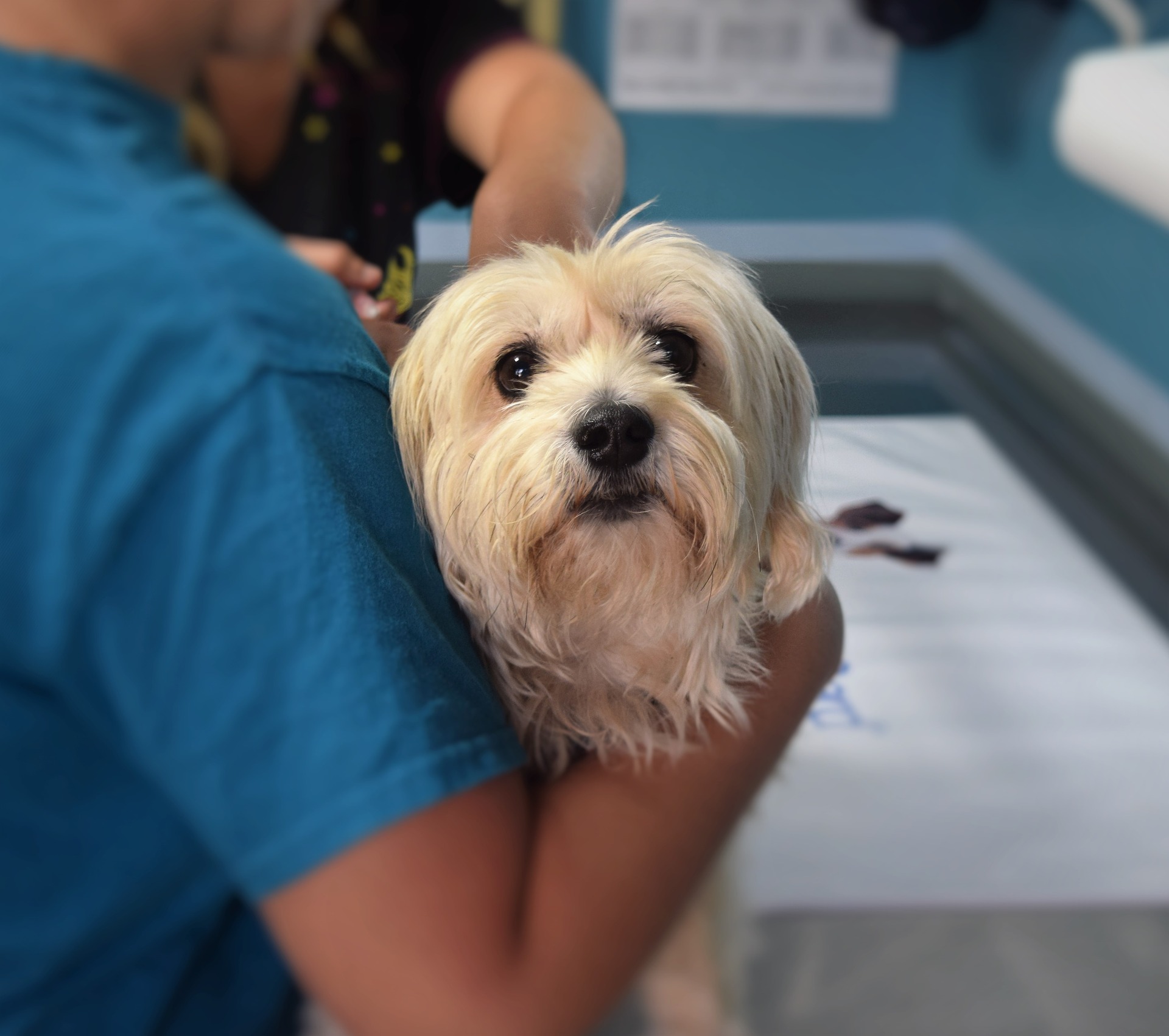We all have someone, human or otherwise, in our lives who has been touched by cancer. Rogue cells that disregard the rules of living in our body and operate with a purpose of their own. Cancer is the most common reason for death in dogs over 10 years of age. Over the past five years, many advances have been made in the treatment of cancer and progress in this field is moving forward at an incredible rate. Fortunately, veterinary medicine has fewer regulatory restrictions for medication use when treating cancer- allowing us more opportunities for clinical trials and novel approaches to therapy than human medicine.
Targeted therapy and use of monoclonal antibodies are some of the newer approaches, which are replacing traditional chemotherapy in many cases. Veterinary oncologists often have a different approach to treating cancer in companion pet patients than doctors treating their human counterparts. Veterinary oncologists set a goal of improving the quality of life rather than compromising quality for the sake of more quantity of life.
Unlike human medicine where a protocol for treatment is determined by the American Medical Association based on the type of cancer diagnosed, veterinary cancer specialists often modify treatment protocols based on a pet’s response to therapy and side effects to the medications. Taking the lifespan of our pets and their inability to describe the side effects of cancer therapy, we can choose a treatment plan with minimal consequences and change our course of action if side effects become evident.
Some of the most challenging and aggressive cancers to treat in veterinary medicine are mast cell tumors, malignant melanoma, and osteosarcoma. These now have newer therapeutic options, which have been developed in the past few years such as Palladia- targeted therapy, melanoma vaccine -using the immune system to attack cancer and soon to be available armed antibodies for osteosarcoma (bone cancer).
We are fortunate to have many local resources and veterinary oncologists to provide guidance to the general practice veterinarians with diagnosis and therapeutic options for pets diagnosed with cancer. Locally, we have Dr. Theresa Arteaga at Animal Cancer Center in Monterey and Dr. Jay Stone at Santa Cruz Veterinary Hospital. There is also SAGE Centers for Veterinary Specialty and Emergency Centers, which is currently installing stereotactic radiation therapy. This is a state of the art use of radiation that allows fewer treatments and more focal use of radiation.
Not too far away, is our own University of California – Davis where a world-renowned veterinary teaching hospital is conducting amazing clinical trials. Here is a link to the current 22 trials they are conduction on cancer patients alone:
http://www.vetmed.ucdavis.edu/clinicaltrials/current_trials/by_service/oncology.cfm
Other resources for pets and their people can be found at these websites http://www.acfoundation.org/ and http://vetcancersociety.org/.
If you have a pet diagnosed with cancer, researching options and finding a veterinary oncologist may help you broaden the available choices for therapy for your pet.
Blog Post Author:
Merrianne Burtch, DVM, DACVIM



